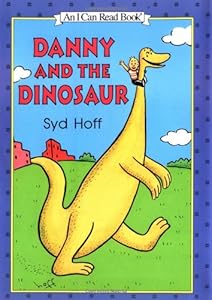Have you ever taught a child to read? It’s an emotional experience as you watch them struggle and improve over time. But when the light bulb finally goes on and they have things figured out so that they can read a whole book, it’s awesome! You have taught a human being one of the core skills they’ll need to navigate through life, and it’s a skill they’ll never forget once they have learned it.
I’ve mentioned before that my own daughter was eighteen months old when I got her her first library card. By then, she already had a love of books because I started reading to her right from the womb. I remember those baby books that we talked about before, and as she grew, I could see that she was ready for more. At about age three, she started trying to figure words out.
That was really exciting. As a writer, you know how important words are to me, and seeing them as important to her, too, was just amazing.
So, I decided to step up the game. I got some early reader books out of the library for her. She already had her own library of picture books and such, but now, it was time to get down to business and I wanted to make it fun for her to learn to read, too.
She loved Louis Sachar‘s Sideways School, Syd Hoff‘s Danny and the Dinosaur, and the adventures of The Bailey School kids, written by Marcia Thornton Jones and Debbie Dadey with titles like Vampires Don’t Wear Polka Dots and Dragons Don’t Cook Pizza.
We would read the books, and sound out each word together. It was one of the best times of my life! And what’s even better is that at 21, my daughter, Shannon, is an amazing writer herself now. She loves books, words, and seems to have an innate ability to create world of wonder. I can’t help but think that spending time with her and books when she was little was the beginning of a writing life for her or if it’s just the genes. I’m guessing a bit of both.
If you’re interested in writing for kids just learning to read, and you have kids that age, you’re in the perfect position to figure out what they need. All kids learn at different paces, of course, and so all different types of books are needed — some simpler, some a little more difficult, some fun, some educational, and so on.
If you don’t have kids of your own, realize that studying your audience is a very big part of writing for children. You have to know who they are and what stage of development they’re in to write for them. So, volunteer somewhere that makes it possible for you to do that.
I spent some time at my daughter’s elementary school, but you can probably volunteer at a library to help kids read or any number of places — hospitals, daycare centers, and so on. It’s critical that you do this, if you want to write for any age group of kids.
So, my advice is that you go to a children’s library and take out a stack of books from each group. See if you want to write picture books, early readers, or older kids books, such as middle-grade material, which we’re just about to talk about next. Stay tuned!


